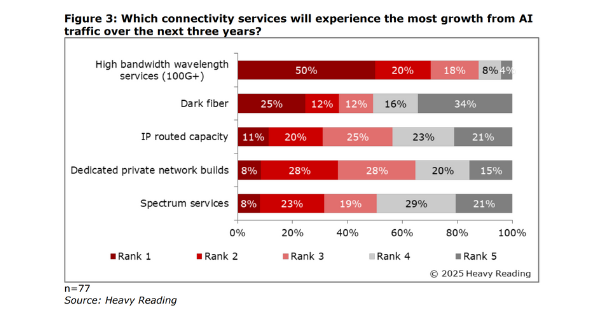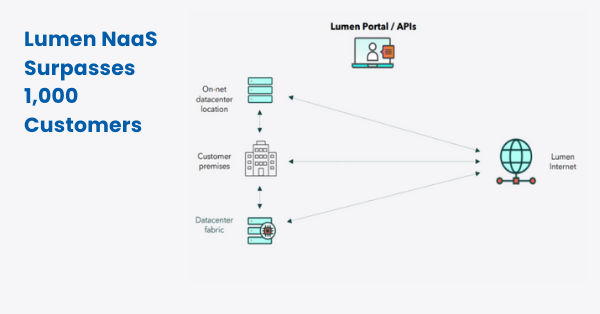KPN Unveils KPN Campus: Private 5G for Large Enterprises
Netherlands-based mobile operator KPN has introduced a new edge 4G/5G product designed for large enterprises. The product, called KPN Campus, merges private and hybrid cellular solutions with on-premise computing and indoor localization services. This advanced local network infrastructure promises to be safe, reliable, and tailored for mission and business-critical applications. The primary sectors targeted include industrial, logistics, and healthcare.
Addressing Network Demands in AI and Hyper-Automation Era
Large enterprises face increasing demands on their network infrastructure due to new trends in AI and hyper-automation. These advancements necessitate more than just speed and connectivity; they require higher-grade security, reliability, and coverage. Existing enterprise networks often struggle to meet these demands, leading to a need for more autonomous, robust solutions that can handle complex, critical applications.
Comprehensive 4G/5G Solutions: Public, Private, and Hybrid Models
KPN offers LTE (4G) and 5G in three formats: national public 5G, bespoke private 5G for enterprise premises, and a hybrid model combining both. The hybrid solution uses the centralised public core network alongside an on-premise 5G gateway. Over the coming months, KPN will introduce various enterprise 5G services, including edge computing and applications, enhancing its networking products. Initial applications focus on indoor localization services, vital for positioning and tracking within enterprise environments.
Meeting Growing Enterprise Demand for Secure Networks
KPN’s decision to launch this product is driven by growing demand from large businesses for more autonomy, reliability, and guaranteed infrastructure performance. Enterprises benefit from private cellular networks’ enhanced security and reliability, crucial for applications such as autonomous vehicles, robots, and augmented reality.
Leveraging Advanced 5G and Edge Computing for Enterprises
KPN Campus utilizes advanced 5G and edge computing technologies to meet the specific needs of large enterprises. By combining private and hybrid cellular solutions with on-premise computing, the product ensures all data remains local, offering the highest availability guarantees. This approach allows for dedicated network capacity allocation for mission-critical applications.
Key Benefits of KPN Campus: Security, Autonomy, and Reliability
The primary benefits of KPN Campus include enhanced autonomy for enterprises, improved security, and reliable network performance. The product supports both 4G and 5G equipment, running autonomously at customer locations. This setup provides businesses with the flexibility to manage their network capacity for critical applications, ensuring smooth operation and high availability.
Transforming Enterprise Network Management Across Sectors
KPN Campus is set to revolutionize how large enterprises in various sectors manage their network infrastructure. The product’s ability to handle complex applications and provide reliable, secure connectivity will drive significant improvements in operational efficiency and innovation. Sectors such as logistics and healthcare, which require precise and reliable network services, will particularly benefit from this solution.
KPN’s Leadership in Providing Bespoke 5G Solutions
KPN is at the forefront of Private Networks, offering comprehensive solutions that include network design and management. By providing bespoke private 5G services, KPN aims to support Dutch businesses in their digital transformation efforts, ensuring they can leverage the full potential of 5G technology in a secure environment.
Collaboration with Technology Leaders for KPN Campus
While KPN has not disclosed specific equipment partners, it is evident that collaboration with leading technology providers will be crucial in delivering the KPN Campus product. These partnerships will ensure the integration of cutting-edge technologies and the provision of high-quality service to enterprise customers.
Current Availability and Future Expansions of KPN Campus
The KPN Campus product is currently available, with initial applications focused on indoor localization services. KPN plans to expand its offerings to include various edge computing applications in the coming months, further enhancing the capabilities of its enterprise 5G solutions.
KPN’s rollout of enterprise 5G services, including edge applications, will occur over the next several months. The continuous development and introduction of new features will ensure that KPN Campus remains at the cutting edge of enterprise network solutions.
Chantal Vergouw on KPN’s 5G Commitment and Enterprise Support
Chantal Vergouw, head of KPN’s enterprise business, emphasizes KPN’s commitment to leading in 5G connectivity and relevant applications. She highlights the company’s ability to provide tailored solutions for business-critical processes and support Dutch enterprises in their digitalization efforts.
Mission-Critical 5G Services with KPN Campus for Large Enterprises
KPN Campus is specifically designed to offer “mission-critical” 5G services to large businesses. This includes providing public, hybrid, and fully private 5G networks. KPN explains that with KPN Campus, companies can allocate network capacity to crucial applications such as controlling autonomous vehicles, robots, and augmented reality (AR) applications. This level of service ensures that all data remains local and secure, with the highest availability guarantees.
KPN Campus also addresses the growing need for mission and business-critical voice and data applications over mobile networks. The product supports public 5G for indoor coverage and enables customers to handle their mobile data traffic locally via a local 5G gateway, or to set up a completely private mobile network for both 4G and 5G equipment.
The product aims to give large business customers more autonomy by providing a secure, reliable network that can be fully allocated to essential applications. This level of control is crucial for industries that rely heavily on precise and uninterrupted connectivity, such as logistics, healthcare, and manufacturing.
By launching KPN Campus, KPN is positioning itself as a leader in the deployment of innovative 5G solutions tailored to the needs of large enterprises, supporting their journey towards greater digitalization and operational efficiency.

































